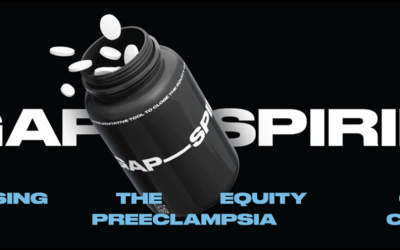
Understanding long-term effects of Preeclampsia and taking charge
Preeclampsia puts women at increased risk for heart disease as well as stroke and high blood pressure later in life. Large population studies have demonstrated that two of three preeclampsia survivors will die of heart disease. That’s news to most survivors of preeclampsia and often – sadly – to their doctors. The most common follow up question when our community learns about this well documented association is, “What am I supposed to do about that?”
To answer that question, a large team of investigators at Brigham and Women's Hospital in Boston, in collaboration with the Preeclampsia Foundation, launched a specialized study called Heart Health 4 Moms (HH4M), designed to provide a practical intervention that would lower a woman’s risk for cardiovascular disease (CVD). This study was unique in that it specifically incorporated patient perspective in its design and implementation in an effort to create an intervention that acknowledged:
- New moms with young children and/or babies at home have little to no time to add more healthcare appointments into their schedule
- Preeclampsia survivors are often emotionally shaken by their unexpected health scare
- This is a unique time to leverage motivation for improving family health, not just mom’s health
The HH4M program improved preeclampsia survivors' knowledge of their CVD risk, increased their confidence in healthy eating and reduced their physical inactivity. There were no improvements in confidence for performing physical activity or increase in physical activity. Full results were published in 2019.
What Actions You Can Take To Decrease Your Long-Term Risks
Many of the risk factors for preeclampsia and other conditions affecting your blood pressure and heart are similar. They include a family history of high blood pressure, heart disease and diabetes. Use our "My Health Beyond Pregnancy" tracking sheet to start the conversation with your healthcare provider today.
While you can’t change your family history, you can adopt a heart-healthy lifestyle to significantly reduce these risk factors:
- Overweight or obese (aim for a BMI at or below 25)
- High blood pressure (aim for blood pressure lower than 130/80)
- High blood sugar (Eat healthy - Lower your salt, fat, and sugar intake)
- High blood triglycerides (a type of fat)
- Low HDL (“good” cholesterol)
- Smoking
Talk to your primary health care provider to take extra care to monitor the health of your heart and blood vessels. If you have other risk factors in addition to your history of preeclampsia, these steps are even more important. Heart disease takes years to develop and you can take steps now to reduce your risk. Making better choices today can impact your health today and in the future.
Monitor Your Blood Pressure
You can also continue to monitor your blood pressure trends at home. For more information on how to accurately use a home blood pressure cuff, watch this video and visit preeclampsia.org/blood-pressure.
original article written March 2019; updated Nov. 2021.
Related Articles

Your story is needed to improve outcomes for moms like you. Add your voice to critical preeclampsia research to ensure that every story is heard.

Nurses play a vital role in detecting preeclampsia and caring for patient before, during, and beyond pregnancy.

A key component needed in the fight against preeclampsia is the development of tests for simple, rapid, and accurate diagnosis and prediction through the development and adoption of biomarkers.

As a first step to address the need for self-monitored blood pressure, the Preeclampsia Foundation started providing the Cuff Kit™ in June 2020 to women at highest risk of developing preeclampsia and...

For more on the Preeclampsia Foundation's work to amplify all research related to biomarkers for improved prediction and diagnostic tools, please visit https://preeclampsia.org/biomarkers. INDIANAPOL...

GAP—SPIRIN campaign gets low-dose aspirin to those most at risk to help close the maternal health gap in preeclampsia ________ NEW YORK, January 23, 2025/PRNewswire/ – In recognition of...
1732072344.png)
While the Preeclampsia Foundation has been championing patient advocacy and representation for all families affected by hypertension in pregnancy throughout our 25 year history, we recognized the uniq...

Washington, DC – April 11, 2024 – On April 10, one day before the start of Black Maternal Health Week, the Preeclampsia Foundation in partnership with Thermo Fisher Diagnostics held a Hill...

Recently, I came across a social media post calling attention to the global maternal health crisis from a Black woman’s perspective. Someone responded to the post asking, “What’s rac...

